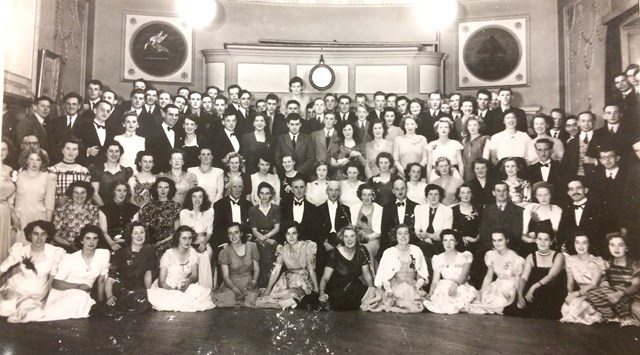
Some of the 'Women's Land Army' at our Hutton campus during World War II.

Some of the 'Women's Land Army' at our Hutton campus during World War II.
At Myerscough, or the Lancashire County Institute of Agriculture as we were known as then, focus from teaching shifted significantly during the Second World War, as most courses were suspended to concentrate on the war effort.
Some short courses remained, notably in dairy, but the main role played by the Institution was the training of almost 500 members of what was known as the ‘Women’s Land Army.’
This was an organisation created for women to be trained to work in agriculture, replacing men called up to the military. The ‘Land Girls’ usually completed their training in around a month, and were then placed with farms that needed workers.
We played a major role in this operation during the war, as well as serving as offices for the War Committee and being the main centre for national milk testing, all from our previous site at Hutton.
The introduction of rationing meant it was very difficult for us to carry on with things like cheesemaking on a large scale, while poultry production switched from breeding chickens to egg production.

(Above: Staff & students at a post war celebration Dinner Dance)
When peacetime came in 1945, British agriculture was in a very different state to what was seen pre-war. Less meat was being produced and eaten with much more milk, vegetables and potatoes in the nation’s diet. Production of these needed to be increased and the Institute set about getting the courses it ran, that were suspended during conflict, reinstated.
This proved to be very difficult. The Ministry of Agriculture refused permission for Diploma courses to begin again and although some teaching did continue at Hutton, it wasn’t until 1949 that National Diplomas in Dairy were taught, and 1954 until the Institute was allowed to offer the National Diploma in Agriculture again.